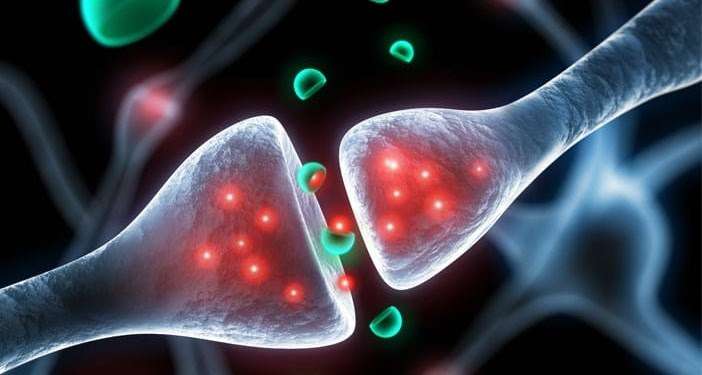DMT Microdosing: Is It a Viable Option for Enhancing Mental Clarity?
Dimethyltryptamine (DMT) is a powerful psychedelic compound known for enhancing consciousness and providing profound insights. DMT is often linked to intense, full-on trips. Recently, there has been growing interest in its use at sub-perceptual doses, called microdosing. Microdosing involves taking a small, sub-threshold amount of a substance, which may offer potential benefits without noticeable effects. DMT Microdosing
This article explores the concept of DMT microdosing, its potential effects on mental clarity, and whether it is a viable option for cognitive enhancement. Dimethyltryptamine Microdosing

What is DMT? DMT Microdosing.
The Nature of DMT
Dimethyltryptamine is a naturally occurring compound found in several plants and animals, including the human brain. It is chemically related to serotonin, a neurotransmitter involved in mood regulation. DMT is most commonly consumed in the form of Ayahuasca, a brew traditionally used by indigenous tribes in the Amazon for spiritual and healing purposes. However, it is also synthesized in pure form for recreational use, often smoked or vaporized for intense, short-lived psychedelic experiences. DMT Microdosing
DMT is known for producing vivid visual and auditory hallucinations, profound shifts in perception, and a sense of timelessness and oneness with the universe. These experiences, known as “trips,” typically last between 15 and 45 minutes, making DMT one of the most powerful and unique psychedelics.
DMT and the Brain
DMT binds to serotonin receptors in the brain, especially the 5-HT2A receptor, linked to mood, cognition, and perception. Its interaction with these receptors is believed to produce altered states of consciousness. DMT is thought to be naturally produced in the brain, though its exact function is still under investigation.
Microdosing Explained
What is Microdosing?
Microdosing involves taking a small fraction of a full psychedelic dose, typically around 1/10th to 1/20th of a standard dose. In the case of DMT, a microdose is typically between 2-5 milligrams, significantly lower than the usual recreational dose of around 30-50 milligrams. The goal is not to experience a full-blown psychedelic trip but to achieve subtle changes in perception, mood, and cognition.
The Rise of Microdosing
Microdosing has gained popularity in recent years, especially in the context of enhancing productivity, creativity, and mental clarity. Substances like psilocybin (the active compound in magic mushrooms) and LSD are commonly microdosed, but DMT has also attracted attention due to its unique effects and potential benefits. Advocates of microdosing claim that it can improve focus, creativity, and emotional balance without the risks associated with larger psychedelic doses.
The Dosage Dilemma
Finding the right dose is crucial when microdosing, as too much of a psychedelic compound can lead to unwanted perceptual changes, while too little may have no noticeable effects. With DMT, this can be particularly tricky due to the potency of the substance. Unlike other psychedelics, even a small increase in dosage can lead to profound, perceptible effects. This makes precise dosing essential for those looking to microdose effectively.
Potential Benefits of DMT Microdosing for Mental Clarity
Enhanced Focus and Concentration
One of the primary reasons people microdose DMT is for improved cognitive performance. Microdosing has been reported to enhance concentration, reduce mental fog, and increase overall mental clarity. Some anecdotal evidence suggests that individuals who microdose experience heightened attention to detail, better task management, and a more profound ability to engage with complex problems. While these benefits are primarily based on user reports, they align with the effects that other psychedelics, such as psilocybin and LSD, have shown in microdosing studies.
DMT, with its deep influence on consciousness, may provide a sense of mental sharpness and focus. Some users have described microdosing with DMT as fostering a state of “flow,” where mental distractions are minimized, and tasks can be completed more efficiently. This could potentially benefit individuals looking to enhance cognitive performance in work or study environments.
Emotional Balance and Mood Enhancement
Microdosing DMT may also have the potential to improve emotional well-being. As a serotonergic compound, DMT influences the brain’s serotonin receptors, which are involved in regulating mood. Many users of microdoses report a greater sense of emotional balance, reduced anxiety, and a more positive outlook on life. These effects could contribute to improved mental clarity, as emotional turbulence often clouds one’s thinking and decision-making.
Larger doses of DMT may cause intense, overwhelming experiences, while microdosing offers emotional benefits without those challenges. Microdosing may help individuals with mild depression or anxiety, improving emotional state and mental clarity.
Creativity and Problem-Solving
DMT is known for its profound effect on perception, often unlocking new perspectives and encouraging creative thinking. When taken in microdoses, some users report enhanced creativity and innovative thinking, which may contribute to clearer, more insightful problem-solving. The ability to see patterns and connections that would otherwise be unnoticed could be a major benefit for those involved in creative professions or tasks requiring original thought.
While the idea of using a potent psychedelic like DMT for creativity is controversial, there is a growing body of anecdotal evidence suggesting that microdosing can lead to enhanced creative output. For example, some individuals report experiencing heightened intuition and the ability to connect seemingly unrelated ideas. These changes in cognition could lead to a clearer and more effective thought process, making it easier to solve complex problems or approach tasks from fresh angles.
Risks and Challenges of DMT Microdosing
Psychological Risks
While microdosing DMT is generally considered to be safer than taking a full-dose psychedelic trip, it is not without risks. One of the main concerns is the psychological effects, particularly for individuals with underlying mental health issues. Even at sub-threshold doses, DMT may trigger emotional or psychological responses that could exacerbate conditions like anxiety, paranoia, or depression. For individuals prone to psychosis or other severe mental health disorders, microdosing could potentially precipitate negative effects.
Additionally, the highly introspective nature of DMT may lead to difficult or unsettling emotional experiences. Even though these effects are typically more subdued at low doses, they should not be overlooked, especially for those with a history of mental health challenges.
Lack of Scientific Research
Another major challenge in considering DMT microdosing as a viable option for mental clarity is the lack of rigorous scientific research on the subject. While microdosing has been studied in the context of other psychedelics, there is limited data on the effects of microdosing DMT specifically. Most of the current evidence comes from anecdotal reports, which can be biased or unreliable.
Further research is needed to determine whether DMT microdosing offers lasting cognitive benefits or if it merely provides temporary improvements. Additionally, there is little information on the long-term effects of microdosing with DMT, including its potential impact on brain function, mental health, and overall well-being.
Practical Considerations
Dosing DMT accurately can be challenging, as the compound is incredibly potent. Small variations in dosage can lead to significant differences in effects, making it difficult to achieve a consistent and safe microdosing regimen. Users may also encounter difficulties obtaining pure, high-quality DMT, as it is not as readily available as other psychedelics like psilocybin or LSD.
Furthermore, the legality of DMT varies by jurisdiction, and in many places, the substance is classified as a controlled substance. This means that individuals looking to microdose DMT may be engaging in illegal activities, which could result in legal consequences.
Conclusion: Is DMT Microdosing a Viable Option for Mental Clarity?
DMT microdosing shows promise for enhancing mental clarity, with benefits like improved focus, emotional balance, and creativity. However, the lack of scientific research and potential risks warrant caution. Those interested in DMT microdosing should consider their mental health status carefully. It’s also important to consult a healthcare provider and understand legal implications.
Until more research is conducted, DMT microdosing remains a largely experimental practice. While anecdotal evidence suggests positive effects on mental clarity, further studies are needed to establish its efficacy, safety, and long-term impact on cognitive function. For now, it remains an intriguing yet uncertain option for those seeking to enhance their cognitive performance and emotional well-being.

